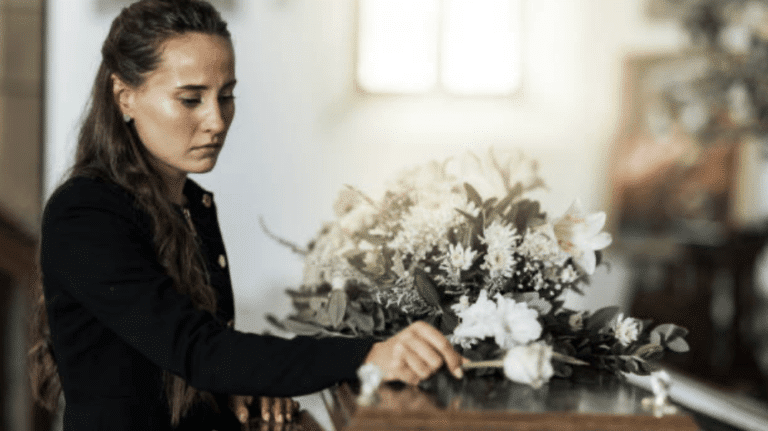Table of Contents
Christian Sex Therapy
with a 93.6% success rate!
How Christian Women Can Overcome Sexual Inhibition in Marriage with Grace, Safety, and Support
If you’re a married woman and the thought of oral sex makes you feel anxious, uncomfortable, or even fearful—you are not alone. Maybe you’ve asked yourself:
“Why does this freak me out so much?”
“Am I broken?”
“Is it wrong to feel this way if I love my spouse?”
First—take a deep breath. There’s no shame in this. Sexual anxiety is far more common than you think, especially among Christian women who carry layers of unspoken confusion, fear, or shame around their bodies and sexual expression. The good news? There’s a way forward that honors your body, your marriage, and your faith.
Let’s unpack what might be going on—and how you can begin to feel more at peace and at home in your sexual relationship.
Why Am I So Anxious About This?
Many women experience a mix of desire and hesitation when it comes to oral sex. There may be curiosity—but also a lingering fear that can feel hard to name.
That fear is often rooted in deeper stories—experiences, teachings, or beliefs that shaped how you relate to your body, pleasure, and intimacy. Some common contributors include:
- Messages that sex is “dirty” or only for reproduction
- Lack of education about female anatomy and pleasure
- Fear of being judged, embarrassed, or rejected
- Past trauma or unprocessed shame
- Struggles with body image or feeling “unworthy” of intimacy
These inhibitions aren’t flaws. They’re signals—clues that something in your heart or history may need attention and healing.
There’s No One-Size-Fits-All Fix
When it comes to sexual inhibition, there’s no magic switch. That’s because the source of anxiety can differ for each woman. One person might feel overwhelmed by sensory discomfort. Another might fear rejection or struggle with intrusive memories. Another might feel “grossed out” without knowing why.
At MyCounselor.Online, we help women explore these concerns through a neuroscience-informed, biblically faithful approach called Neuroscience Informed Christian Counseling® (NICC). This model gently uncovers where anxiety is coming from, why it makes sense, and what healing steps are available.
Whether your inhibition is rooted in trauma, teaching, or just a lack of safe experience, you’re not stuck. God designed your brain and body to heal and mature. And your sexuality is not off-limits to that redemptive process.
A Gentle First Step: Get Comfortable with the Unknown
Sometimes anxiety lessens as we simply grow more familiar with what feels unfamiliar. Here are a few practical, shame-free ways to start exploring:
- Start with Personal Familiarity
Take time alone to explore your own anatomy with curiosity and kindness. A warm bath, a hand mirror, and a basic anatomy guide can help you become more comfortable with how your body is designed. This isn’t about performance—it’s about reconnecting with yourself.
- Move into Shared Discovery
Once you feel safe with your own body, you can invite your spouse into the process. Start with a relaxed, non-sexual setting—maybe after separate baths or showers. Make it a “show and tell” moment, where you both get to learn about each other’s bodies without pressure or expectations.
- Try Using a Barrier
If direct oral contact feels overwhelming, consider using a barrier like an oral dam or even non-porous saran wrap. This creates a sense of sterility and distance that can lower anxiety and help you ease into the experience without going “all in” immediately.
These small steps can create big shifts in your comfort and confidence. But if you find that anxiety or discomfort persists despite your best efforts, it’s okay—and wise—to reach out for support.
When to Consider Counseling
Sometimes, our inhibitions aren’t just about the act itself—they’re tied to deeper wounds, false beliefs, or emotional disconnects that need a safe place to be explored.
That’s where working with a trained Christian sex therapist can be a game changer.
At MyCounselor.Online, our NICC-trained therapists specialize in walking with women through these sacred, sensitive places. They don’t rush you. They don’t judge you. They listen to your story, help you understand your nervous system, and gently guide you toward healing and joy in your sexual relationship.
Sex is not just physical—it’s spiritual, emotional, and deeply relational. And God cares about your experience of it.
You Don’t Have to Stay Stuck
God designed sex in marriage to be mutual, joy-filled, and unifying. If fear or shame has been getting in the way, that doesn’t mean you’re broken—it means your soul is asking for healing.
There’s no rush. There’s no pressure. But there is hope.
You don’t have to figure it out alone.
💬 If you’re ready to take the next gentle step, visit MyCounselor.Online and connect with a NICC-trained Christian counselor who understands where you are—and can walk with you toward where you want to go.
You were made for more than fear. You were made for connection.
And we’re cheering you on every step of the way.





